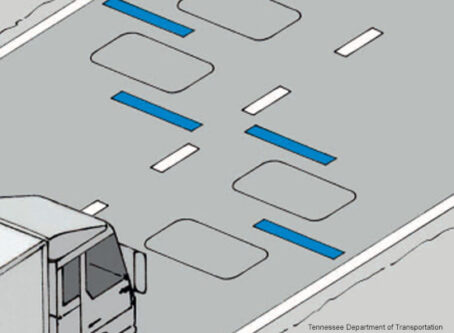Cross-border trucking addressed in full USMCA text
Just a few days after House Democrats announced approval of the refined United States-Mexico-Canada Agreement, the full text of the trade agreement has been released, which includes sections specific to cross-border trucking.
On Friday, Dec. 13, HR 5430, informally known as USMCA, was introduced to the House. Included in the text are provisions addressing concerns with cross-border trucking.
A markup of the bill is scheduled by the Ways and Means Committee on Tuesday, Dec. 17. A full House vote is expected to take place on Thursday, Dec. 19.
Cross-border trucking
Specific to cross-border trucking, USMCA will give U.S. trucking companies a chance to have a Mexican carrier investigated. The measure addresses concerns about approved Mexican truckers not following the rules set by the North American Free Trade Agreement.
More specifically, a representative of a U.S. long-haul trucking services industry, the U.S. trade representative, a congressional committee or the president can request an investigation to determine whether an existing Mexican carrier or one seeking approval is causing or threatens to cause material harm to a United States long-haul trucking services industry.
When making that determination, the International Trade Commission is charged with considering two factors:
- Volume/tonnage of cargo.
- Employment, wages, hours of service and working conditions.
Once the commission concludes its investigation, it will be publicly published in the Federal Register. The commission has 120 days from the launch date of the investigation to reach a determination.
“Material harm” is defined as “a significant loss in the share of the United States market or relevant sub-market for cross-border long-haul trucking services held by persons of the United States.”
Furthermore, Mexican carriers that have already been granted cross-border authority or have applied for authority are not off the hook. According to USMCA section 327, the U.S. Department of Transportation will compile a survey of those carriers to ensure compliance of the Border Commercial Zones.
A report summarizing the results of the survey will be prepared within 180 days of USMCA going into force.
The Owner-Operator Independent Drivers Association said it is pleased with cross-border trucking provisions.
OOIDA Director of Federal Affairs Jay Grimes made the following statement:
OOIDA welcomes the inclusion of language in the updated USMCA agreement that will help restrict Mexican-based carriers and drivers from operating beyond the Border Commercial Zones. For decades, OOIDA has opposed the original NAFTA provisions that established today’s cross-border Mexican trucking regulations which harm American small-business motor carriers and jeopardize highway safety. The new USMCA deal creates a thorough review process to identify and remove Mexican-based operators that pose material economic harm to American truckers. These provisions will help end the current program that allows foreign carriers and drivers who are not held to the same rigorous U.S safety regulations and are bringing down wages for American workers to transport freight on our highways We hope Congress will approve the USMCA as soon as possible.
If USMCA passes the House, it will need to be passed by the Senate. After that, President Donald Trump can sign off on the trilateral agreement. Mexico’s and Canada’s governments will also need to ratify the updated agreement before it can move forward.









